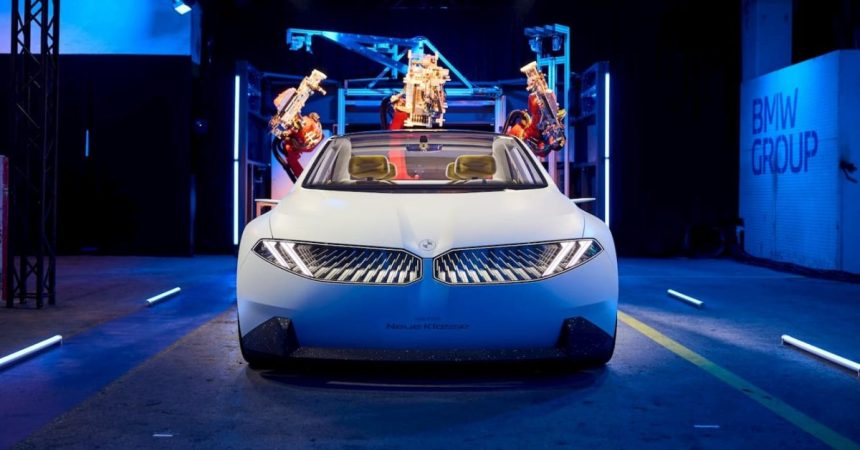Germany is Europe’s greatest auto market, and it’s been one of many essential drivers of EV progress. However now that’s anticipated to vary course, as EV gross sales are projected to drop – by 14% – for the primary time in eight years.
Germany’s VDA, an curiosity group for the nation’s car business, says that battery-powered autos are more likely to see a decline from 524,000 models final yr – greater than another European market – to 451,000 models this yr. Contemplating Germany is aiming to have 15 million BEVs on the street by 2030, that quantity is transferring within the flawed route.
It’s as a consequence of a lot of elements – primarily as a result of Germany pulled the plug on its EV subsidy program in December, a full yr sooner than anticipated. Add inflation, rising automobile costs, and “sub-par charging infrastructure,” as Automotive Information Europe describes, into the combination, and it’s inevitable that gross sales will drop.
In keeping with Automotive Information Europe, producers are pushing again rollouts of EVs, and rental companies are “paring purchases for his or her fleets.”
Nonetheless, even after the subsidy loss, automakers like Tesla, VW, Audi, Stellantis, and Mercedes-Benz have jumped in to compensate for it, a minimum of for a short while.
Renault introduced Monday its plan to delay the IPO of its EV startup Ampere, citing sluggish demand and tough market circumstances because the rationale. Bloomberg reported, too, that Volkswagen is doing the identical with its EV enterprise, with sources telling Bloomberg that VW is pushing again its IPO plans for its battery unit.
Nonetheless, the decline isn’t all that stunning: Germany’s passenger automobile market, VDA expects it to shrink by 1% to 2.82 million this yr. However that’s a part of a downward development that has been taking place for the reason that pandemic, based on VDA.
In keeping with VDA estimates, the worldwide market ought to see a 2% progress to 77.4 million vehicles, in comparison with the 78.8 million pre-pandemic. It forecasts the worldwide market to develop by 2% to 77.4 million vehicles.
Germany is predicted to provide 1.45 million EVs this yr, however a lot of that output will probably be exported, the report mentioned. After China, Germany is the world’s second-largest passenger automobile BEV producer – however contemplating China produced 6.6 million BEVs in 2023 to Germany’s 1.2 million, that’s a reasonably large hole.
For comparability, the US produced 1.1 million EVs final yr, based on knowledge from VDA and S&P International Mobility.
Electrek’s Take
The caveat right here, too, is that VDA is a lobbyist group for German automakers, powered by stalwarts BMW, Volkswagen, and Mercedes, that are in a decent place as they battle to adapt to EVs and hold tempo with China’s BYD and Tesla. Plus Porsche’s CFO Lutz Meschke mentioned that Europe could push again its 2035 ban on ICE autos as a consequence of slowing EV demand – in order that’s not comforting information of what could be brewing.
Jobs – the good-paying form with advantages and protections – are on the road too: Volkswagen mentioned it will reduce hundreds of jobs in Germany to slash $11 billion in prices, and German EV suppliers are chopping jobs, with one of many nation’s largest suppliers saying it would slash 20% of its workforce as a consequence of low demand.
However peaks and valleys are par for the course within the auto business, and EVs actually aren’t resistant to this. Nonetheless, European automakers are drumming up new fashions to remain within the sport. For its half, BMW says it’s now investing $711 million (€650 million) to transform its essential manufacturing unit in Munich to solely produce electrical autos by the tip of 2027, in hopes of pushing its next-gen Neue Klasse EVs ahead. The automaker says it hit its goal of 15% share of battery-electric autos – and expects to promote half 1,000,000 BEVs in 2024.






